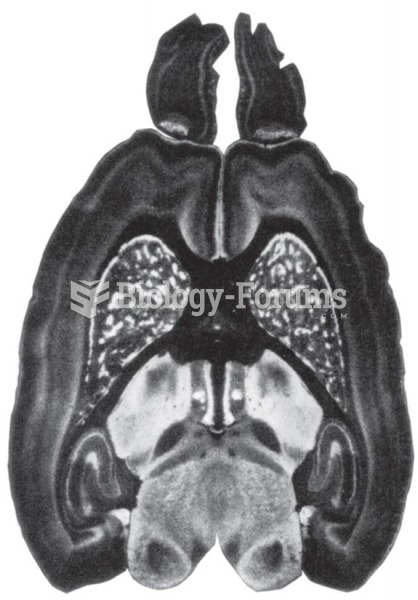|
|
|
If you use artificial sweeteners, such as cyclamates, your eyes may be more sensitive to light. Other factors that will make your eyes more sensitive to light include use of antibiotics, oral contraceptives, hypertension medications, diuretics, and antidiabetic medications.
Drying your hands with a paper towel will reduce the bacterial count on your hands by 45–60%.
All adults should have their cholesterol levels checked once every 5 years. During 2009–2010, 69.4% of Americans age 20 and older reported having their cholesterol checked within the last five years.
Less than one of every three adults with high LDL cholesterol has the condition under control. Only 48.1% with the condition are being treated for it.
Stevens-Johnson syndrome and Toxic Epidermal Necrolysis syndrome are life-threatening reactions that can result in death. Complications include permanent blindness, dry-eye syndrome, lung damage, photophobia, asthma, chronic obstructive pulmonary disease, permanent loss of nail beds, scarring of mucous membranes, arthritis, and chronic fatigue syndrome. Many patients' pores scar shut, causing them to retain heat.
 The pituitary gland lies just underneath the brain. It is subdivided into anterior and posterior lob
The pituitary gland lies just underneath the brain. It is subdivided into anterior and posterior lob
 It is important for new employees to know the location of all fire extinguishers. (A) Pull the pin ...
It is important for new employees to know the location of all fire extinguishers. (A) Pull the pin ...





